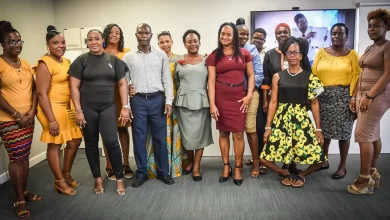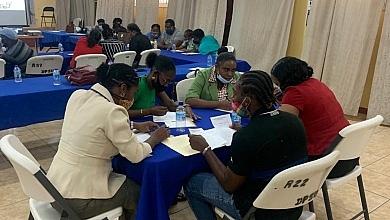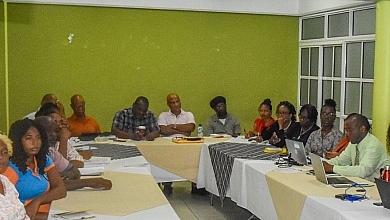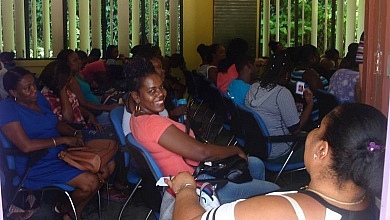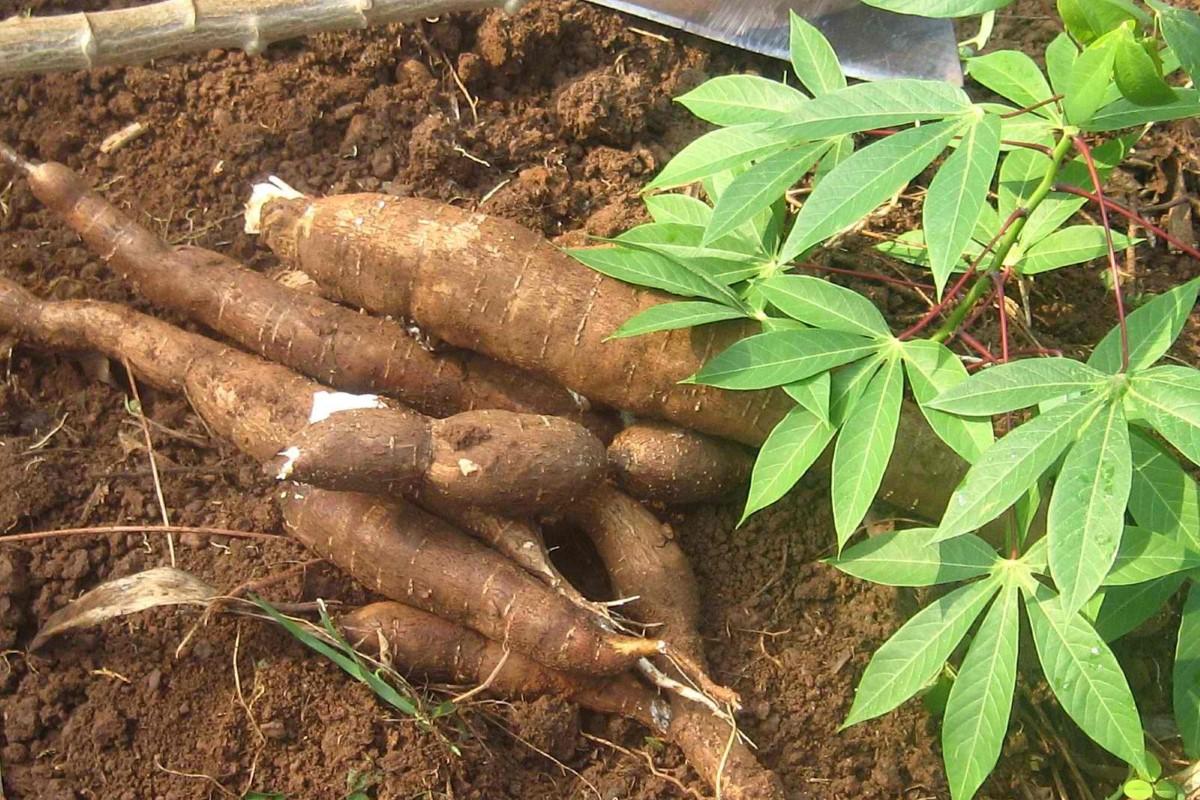
Thirty Cassava Farmers Go To School; Visitors Warned Against Importing Plants
Thirty cassava farmers are back to farming school studying how to better grow improved cassava yields. Facilitated by the Ministry of Agriculture in a Cassava Industry Development Project sponsored by the CDB, the farmers will be exposed to an 8-week cassava cultivation exercise on the farms. The farming centre where the masterclass project is to take place is located in Calibishie in the northeast of the country.
The overall objective of training the farmers in cassava growing techniques is to further develop the cassava industry, stated Ryan Anselm, the technical officer for projects and services at the Ministry of Agriculture. The cassava growers will be exposed to modern technology for soil assessment and crop productivity during the masterclass farming school.
“The main objective is to conduct market assessments and technology validation and simulation of that technology,” Anselm explained. “This farmer field school is intended to share knowledge and it is a participatory approach where farmers will learn by doing and understand the production system, sampling and diagnosing pest problems.”
Master trainer and agriculture officer at the Ministry of Agriculture, Kian Stevenson, will be coordinating the farming class. He said the success of the school will be judged by how well the cassava farmers are able to contribute to the food sector of the island. He said the facilitators and the trainees will all engage in hands-on cassava farming exercise from seed to harvest to processing, until a whole farming community is empowered.
The program is being funded by the Caribbean Development Bank and implemented by the Ministry of Agriculture with technical assistance from the Food and Agriculture Organization and the Caribbean Agricultural Research and Development Institute. The ministry raised agriculture extension officers and related staff to set up the farm training school.
In a related development, the Head of the Plant Protection and Quarantine Unit of the Division of Agriculture, Nelson Laville, has warned visitors to Dominica against bringing plants and animals that could introduce foreign pests and diseases to the island. According to him, the ongoing CITP and WCMF celebrations in the country will witness a large influx of visitors to Dominica, and these tourists could bring in exotic plants and animals that could destroy the existing biodiversity in the island.
“We are asking you to help us and be vigilant and conscious of the risks involved in carrying plant material, live animals and animal products,” Laville said. “They pose a risk to the bio-security, biodiversity plant health of the country.”
He disclosed that the customs and immigration officials at major airports have been sensitized to scrutinize imports of plants and animals into the country. Laville said visitors obtain an import permit and a phyto certificate for their plants before they can be allowed into the country. The import permit and phyto certificate can be obtained at the Plant Protection and Quarantine Service located at the Botanic Gardens.
“In this season when we have so many people coming in for our festive time, we are having fun but we need to be conscious of the risks so we are asking all travellers to be aware and they should declare all their agricultural commodities to the Customs department or the Plant Protection Officer at the ports,” he said. “We will inspect, certify and assist.”
This article is copyright © 2019 DOM767





